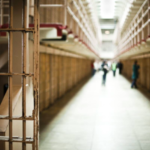A New View: The Prison System in Denmark by Grace Pires
Prison reform is a frequent subject of discussion in our newsletters, and with good reason. Incarceration for minor crimes, such as drug possession, can break apart families and leave children  without parents. Another added problem is that minorities such as African Americans and Latinos are incarcerated at a higher rate than white people. Reforming America’s prison system can create major positive changes for inmates who have committed nonviolent crimes. America can draw inspiration from foreign countries’ prison systems, particularly Scandinavian countries like Denmark.
without parents. Another added problem is that minorities such as African Americans and Latinos are incarcerated at a higher rate than white people. Reforming America’s prison system can create major positive changes for inmates who have committed nonviolent crimes. America can draw inspiration from foreign countries’ prison systems, particularly Scandinavian countries like Denmark.
From the American viewpoint, Denmark’s prisons can barely be considered prisons. There are no barbed wires or gun towers because prison staff believe that an escape is better than a hostage situation. Other major elements of the Danish prison system include frequent, private visits with family, no uniforms, and the ability to cook one’s own meals. Many prisoners continue working at their jobs regardless of incarceration.
As for the violent conditions within the prison, the rate of prison deaths in Denmark is only one percent, which is equivalent to the U.S. However, in 2013, that meant that 8 Danish prisoners died, in comparison to the 4,446 deaths in the U.S.
If America had similar policies to Denmark, perhaps the rate of prison deaths or incarceration wouldn’t be so high. Unlike America, Danish prisons prioritize the dignity of their prisoners over harsh policies. And it’s undoubtedly effective—recidivism rates are three times lower in Scandinavian countries than in America. By enforcing an open prison system, America could stop separating parents from children and reduce the need for so many prisons. After all, shouldn’t America be trying to reduce the number of incarcerated citizens?


Prisoners Lives Matter. The US, unlike Denmark, was founded on violence and racism and this has contaminated all our institutions, especially our prisons. Dignity for prisoners is a value that could lift up our society and transform our prisons. Good health care, education, and job opportunities for all would drastically reduce our prison population as well as demonstrate respect based on a belief in the dignity of all.